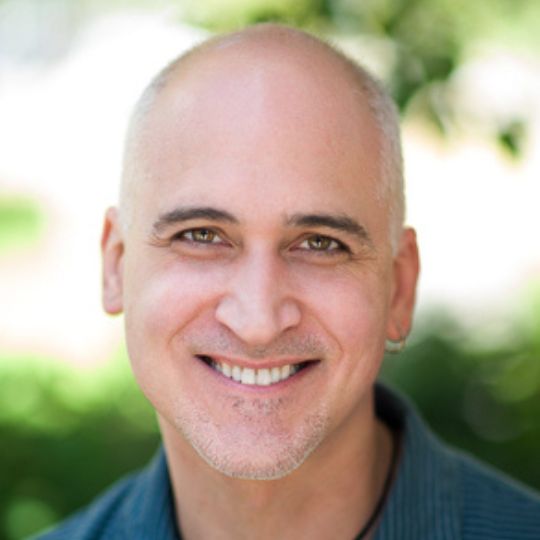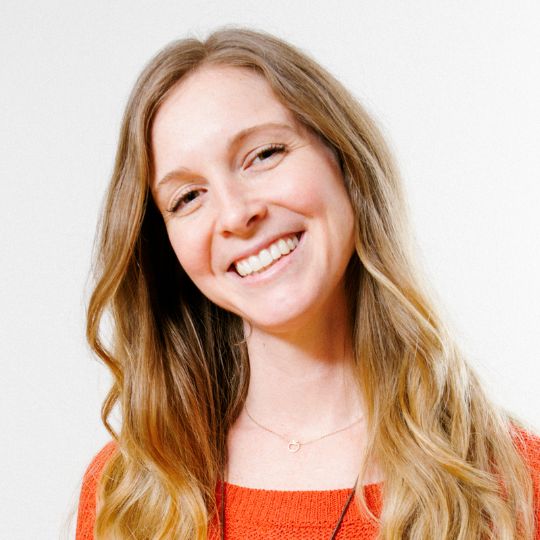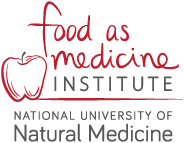Enrollment is open and on-going – register any time to begin!
This activity is approved by the Board for Certification of Nutrition Specialists℠ (BCNS℠) to provide Continuing Education (CE) credits for Certified Nutrition Specialists® (CNS®) for a maximum of 20 CE Credits.
About the Food Story Coaching® Training Program
This advanced coaching program for wellness professionals is for those interested in helping their clients achieve their dietary goals more quickly, easily and permanently. If you want to learn how to dive deeply into your clients’ relationships with food to help them heal, grow and step into a healthier relationship with food, this program is for you.
Is this you?
- “I’m tired of talking to my clients about calories, meal plans, and ‘good’ food versus ‘bad’ food.”
- “My patients aren’t making meaningful changes to their diets and lifestyles even though I’m providing them with all the education and information they need about nutrition.”
- “My clients say they know what to do… but they aren’t doing it.”
How would it feel to…
- Engage more deeply with your patients to assess their true needs and watch them experience transformative results?
- Have confidence asking your clients about their relationship with food, along with the thoughts and feelings that accompany it?
- Help patients understand their food story and how it impacts their goals and struggles with food?
In the Food Story Coaching® program you will learn how to:
- Use advanced coaching techniques, styles, and approaches to interact more powerfully with your clients
- Collaborate with patients to create and achieve realistic goals based on their deep insights into their concerns, roadblocks, and hurdles
- Combine health education, coaching, and empowerment to maximize clients’ success
Adding this skill set to your practice will lead to greater client success, retention and referrals. All while making your job easier as clients will feel empowered to make changes using the educational materials you’ve provided them.
Meet Your Instructors
Ian Rubin, MA, CPT, CHC – Founder, Food Story Coaching®

Ian is a wellness coach, founder of Wholeself Wellness LLC, coach educator, and adjunct faculty member at National University of Natural Medicine (NUNM) in Portland, Oregon. As an instructor with wellness professionals, his focus is on Health Coaching, Food Anthropology, and Food Story Coaching, the latter being his proprietary approach to food coaching developed over the last 15 years in one-on-one and group work with clients. This approach is driven by his passionate interest in food culture and the intersection of the personal, social, psycho-spiritual, and anthropological forces that influence our daily food choices.
As a veteran coach and educator with over two decades of experience in the health and wellness industry, Ian consults with businesses, agencies, organizations and wellness promotion companies to improve employee and/or client wellness efforts through enhancing the skills and abilities of their internal health coaches.
Caroline Hinchliff, MScN, Mentor, Food Story Coaching®

Caroline is Food Story Coach mentor and the founder of Eat Hike Love. She earned her master’s in nutrition in 2016 at National University of Natural Medicine. When introduced to Ian’s relational approach to food & health coaching during her graduate program at NUNM, she immediately knew this was the kind of work she wanted to do in the world. After recovering from 15+ years of disordered eating and dozens of failed diets, Caroline finally started experiencing success with food when she shifted her focus to her food story. She was eager to offer the same support to her clients. Caroline has worked with dozens of women to support them in re-writing their food story to build confidence, competence, and comfort with food. Clients often tell her, “This new sense of freedom with food has overflowed into so many other areas of my life!”
As a Food Story Coach mentor, Caroline offers her perspective as a student of this work and shares the lessons she’s learned from applying the principles of Food Story Coaching in working with clients.
Contact Ian and Caroline with any questions about Food Story Coaching at info@foodstorycoaching.com
Course Format: Education and Practice
This is an intensive coaching program that will turn you into an expert in a very short time! Here are the habits and practices that will help you get the most benefit from your participation in this program.
Practice is critical. Even if you are scared, nervous, overwhelmed or don’t feel like you’re ready, do it anyway! The only way to feel better about it is to do it a lot, do it imperfectly and keep getting better by doing it. The focus will be on learning by doing doing doing, not spending time regurgitating facts, all while getting detailed feedback from your instructors on your skills and abilities.
Time Commitment & Expectations
In order to successfully complete this online, asynchronous program, plan to dedicate approximately 5 hours to each module:
- 2-3 hours of external skills practice, assignments, reading, and other activities
- 2 hours of online lectures with instructor and Food Story Coaching Founder Ian Rubin, MA, CPT, CHC
Program Structure
In each module you will learn through:
- Lecture
- Coaching demo
- Skill-specific practice sessions
- Mentorship
Practice Partners & Clients
We recommend you practice specific skills, session components, or techniques with colleagues or wellness professionals to get comfortable with this skill. However, if you’re already working with clients, you may engage with them in the same fashion.
We do not recommend working with close family or friends as the emotional connections often complicate the coaching dynamic. We’re not saying you can’t do this, but be prepared for it to be more difficult.
Module Breakdown
- Module 1: Food Story Coaching Theory 1 – Foundational philosophies, Approaches to change
- Module 2: Food Story Coaching Theory 2 – Archetypes and meaning, Empowerment and authorship
- Module 3: Food Story Culture 1 – Context and background, Impact
- Module 4: Food Story Culture 2 – Mindset before skillset, Food Story as Paradigm shift
- Module 5: Clinical Application 1 – Session flow overview, Session flow step-by-step, Food story vs. other approaches, This work is hard
- Module 6: Clinical Application 2 – Common topics and how to handle them
- Module 7: Clinical Application 3 – Powerful emotions and how to handle them
- Module 8: Considerations for Your Practice – Marketing mindset, business development, selling weight loss, mental health, work-life integration
Registration and Course Details
When: Enrollment is open and on-going, register any time!
Fee: $1,800
For more information or questions, contact info@foodstorycoaching.com
Register today!
Enroll and you’ll receive:
- Food Story Coaching education, training and support
- Access to all materials and support platforms
- Connections with a growing community of like-minded Food Story professionals
- Bonus! Early access to the Food Story Coaching Fundamentals online course ($79 value)
Early Enrollment Bonus!
Reserve your spot early and receive a complimentary 1-on-1 coaching strategy session with Ian to help you achieve your professional and business goals through Food Story Coaching.
Additional Course Information
Food Story is the unconscious accumulation of thoughts, ideas, beliefs, hopes, dreams, and actions related to how we interact with food. It comes from our own life experiences, as well as the culture surrounding us. For example, we may think that some foods are “good” and some are “bad,” or believe that we’re “lazy” or “unmotivated.” This story drives our daily habits and contributes to our unhealthy (and often unhappy) relationship with food, keeping us from the success we want.
Food Story Coaching® helps rewrite this story: the definitions, perspectives, thoughts, beliefs, and feelings. This process transforms clients from the inside out, removing the stress and anxiety and replacing it with actions and habits that flow with ease. This new story will let clients enjoy eating again and permanently achieve the health and wellness they so richly deserve. It will help them achieve a freedom with food that has eluded them so far.
Food Story Coaching® isn’t a diet program, weight loss protocol, or your usual medical intervention. It’s about understanding (and shifting) your clients’ relationship with food in order to experience all the health, weight, and body image desires they have. Food Story Coaching® will help them uncover the real source of their food concerns by showing them what parts of their story were written by cultural forces and what parts are unique to them. It will help them identify their biggest concerns with food and strategize how to solve them, step-by-step. Exploring these deep inner truths unburdens them from the guilt, blame, and shame they’ve felt because they have not succeeded with previous health pursuits.
“Food Story Coaching is a technique that helps to elucidate a patient’s relationship with food through questioning and counseling. It has helped me to uncover numerous patients’ underlying narratives that were preventing them from changing their behavior and achieving their health goals. Food Story Coaching skills can be applied to many other interventional therapies to help improve compliance and patient outcomes, such as lifestyle modifications, at-home therapies, keeping a consistent supplement or medication schedule, following up with referrals, etc. To reiterate, these skills have been invaluable for me to facilitate healing with my patients.”
– ND training participant
Code of Conduct
We expect everyone to be inclusive, non-judgmental, and respectful of diversity in knowledge, experience, and perspectives as well as goals and desires from this program.
Show up. Be honest with yourself and us, as only through this honesty can everyone in the program grow.
You’re here to learn for yourself, not fix or educate others. Do not offer advice or suggestions unless the situation explicitly calls for them. Keep your focus on you and your profession.
There is no cheating because there is no testing! Collaborate all you want.
Be respectful in all your interactions. Etiquette is critical. We have a no tolerance policy for hate speech, gaslighting, racial or sexual tropes, attacks, innuendo, jokes, or other offensive behavior. If you’re not sure if something is appropriate, it’s probably not.

